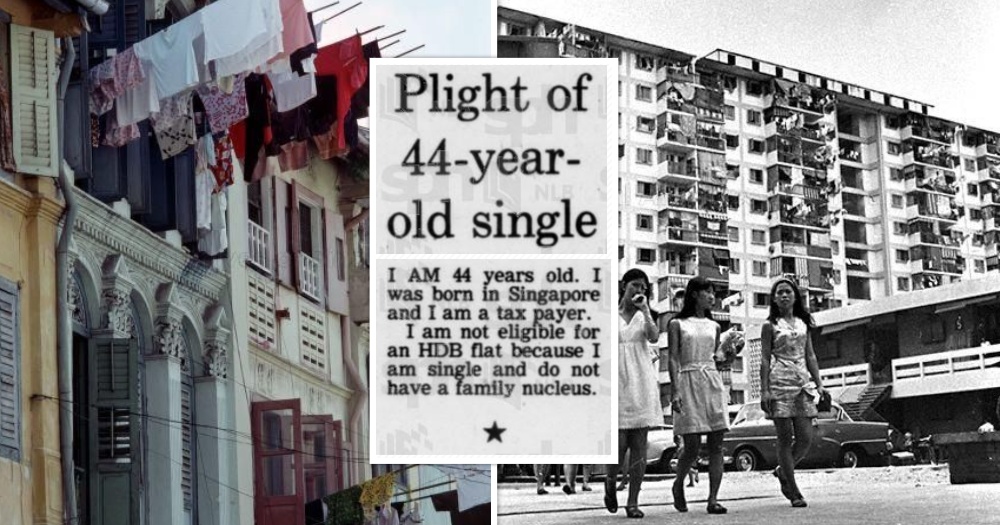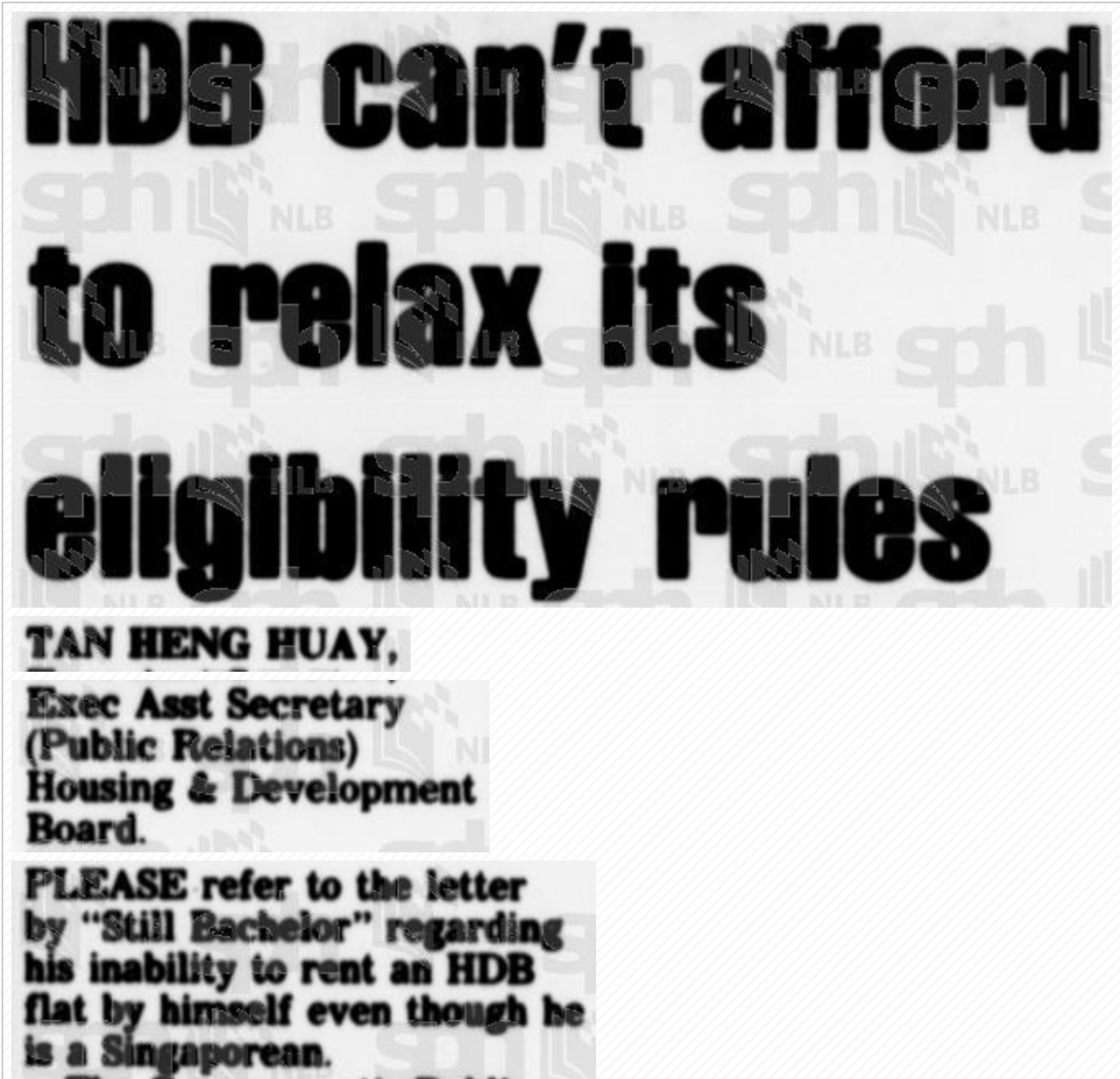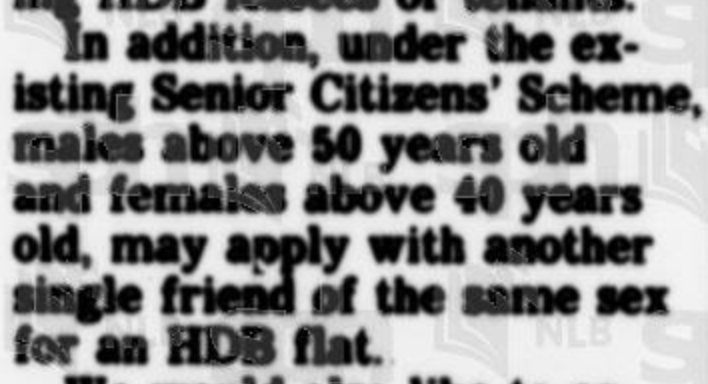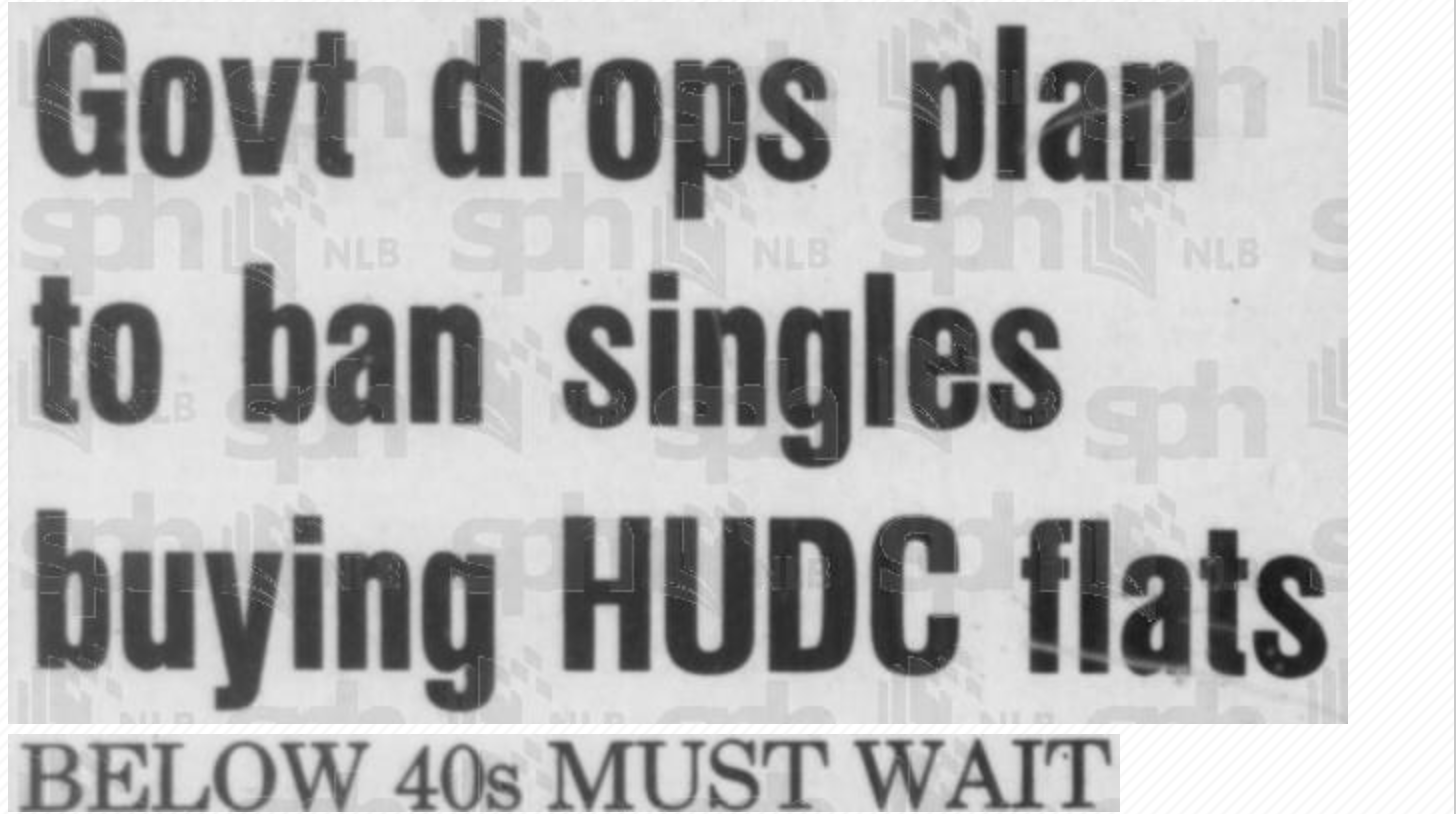It seems almost automatic now for some: get engaged, apply for BTO, marry, move in when BTO is ready.
For singles, the path to home ownership has gotten quite formulaic as well:
- Single, get/stay super rich, hopefully get a condo, or
- Single, wait till 35, hopefully get an HDB flat.
Renting your own place is one way to move out of your parents' house, but there is a fear this might be throwing money down the proverbial well every month, which can add up to a significant impact on your finances by the time you are ready to buy your own property.
Some under 35 and not yet married might be surfing the web more often these days, looking for rental units –– a small flight of fantasy while confined to an increasingly tense family environment since the circuit breaker started on April 7.
A natural consequence of being, more or less, confined to the house.
Ultimately, there aren't too many options for young single Singaporeans, who will have to keep ticking off calendar boxes until "staying at home" is no longer a norm enforceable by law.
They might also need a few more calendars to count down to their 35th birthdays.
Not always 35
It could be worse for those planning to remain single though; in fact, it was very much so just a few decades ago.
It was only in 1991 when newly-minted Prime Minister Goh Chok Tong (who had become PM in 1990) rolled out the Single Singapore Citizen Scheme.
In then-PM Goh's first National Day Rally speech, he said:
"When I was looking at HDB's problems, I realised that there is also a group of Singaporeans who requires assistance. That is the singles. Our rule now does not allow the singles to own their own home by himself or by herself.
He has got to do it jointly with somebody else. I will ask the Minister to look into this to see how we can facilitate the singles to either rent or own HDB flats.
We can announce the scheme later on once the Minister has formulated a proper scheme to cater to the singles. By the way, there are some 19,000 single men over 40 years and some 37,000 females over 35 years."
The scheme, which allows single Singaporeans who are 35 and older to buy HDB flats, was launched in October 1991, and continues today.
Singles could neither buy nor, for a long while, rent a flat
Before this, singles were unable to buy HDB flats due to a variety of factors. Here is one reason that then-HDB executive assistant secretary Tan Heng Huay gave in 1983:
"There are presently more than 100,000 families waiting to buy and 10,000 families waiting to rent. The HDB cannot afford to relax its eligibility rules to allow singles to apply for a flat alone as this will further lengthen the waiting list and prolong the waiting period of families urgently in need of housing."
This particular answer was part of a reply to a letter in The Singapore Monitor by "Still Bachelor", who had written in, regarding his inability to rent a HDB flat in Singapore despite being a Singaporean.
Interestingly, Tan pointed out an alternative to "Still Bachelor" near the end of his letter.
Super good friends.
The intermediary
Imagine you're single and in your 30s or 40s in the late 70s or early 80s. The family isn't doing well; the oldest daughter Vicki recently divorced her doctor husband, the youngest is too busy graduating from university, and Gary is once again rebelling against your stern but well-meaning father, Lim Kay Tong.
Tensions are high and you, being not all that financially well off, don't really see a way to get out of the situation, or the house.
And right then, a sliver of salvation:
Enter the Housing and Urban Development Company (HUDC), set up in 1974, which constructed housing for middle-income groups. HDB would eventually take over its functions in 1982.
And one of the most interesting things about this new scheme? Singles were allowed to buy homes under it, and they could even use their CPF savings to help with the purchase.
It was a game-changer in many ways.
But like all significant moves, there would inevitably be bumps in the road. Here's a Business Times (BT) article from February 16, 1981:
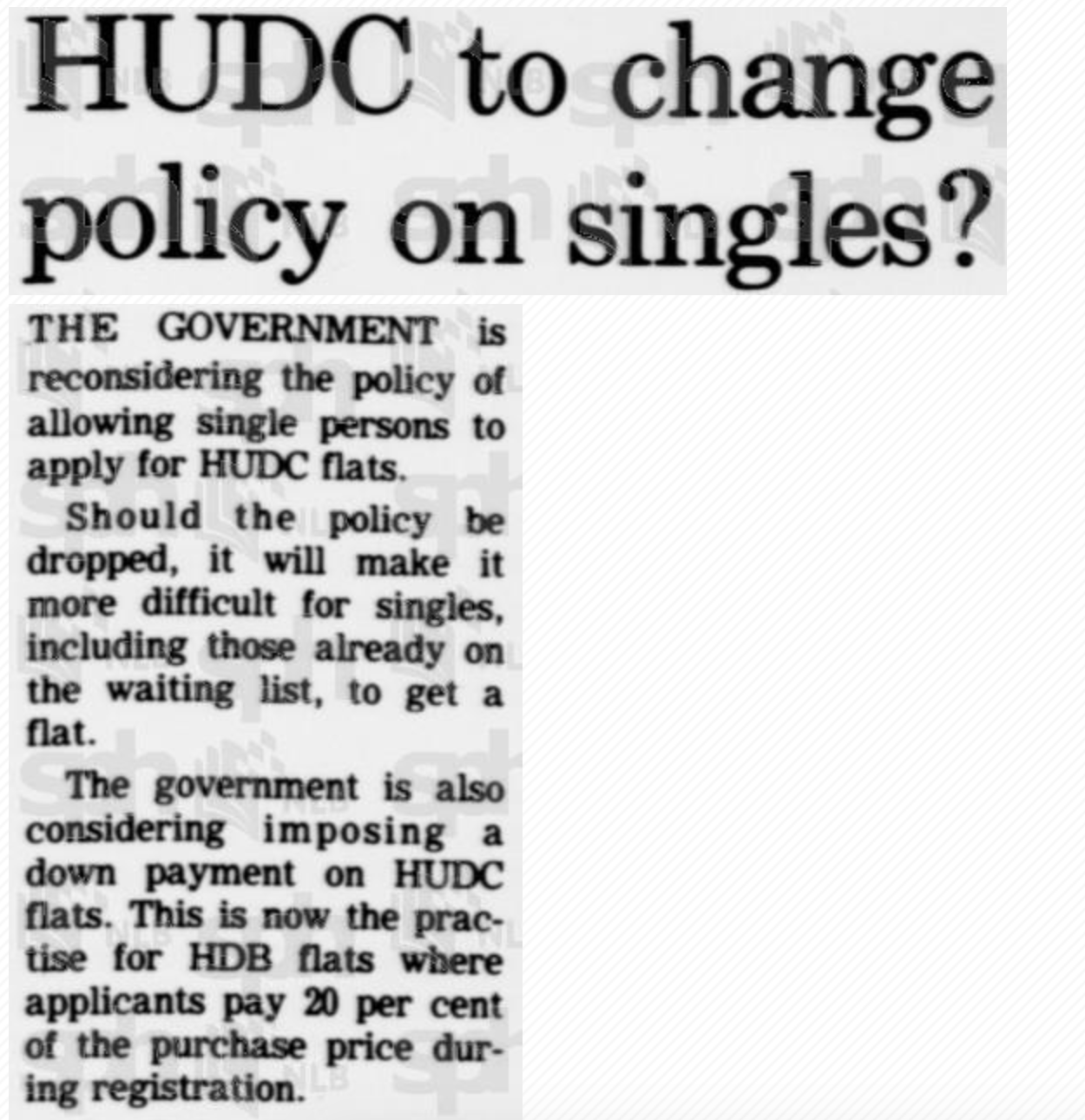 Image from NLB/ Business Times, February 16, 1981.
Image from NLB/ Business Times, February 16, 1981.
In the same article, it was reported that Teh Cheang Wan, then-Minister for National Development, had floated the idea of banning singles from purchasing HUDC flats, as it was "wasteful" to allocate one flat to just one person. He also said allowing singles to apply for HUDC flats would lead to the premature break-up of the family unit.
Eight days after the Business Times report about Teh's statement, a strongly-worded letter was published in The Straits Times (ST), which perhaps captures the frustration of singles at that time:
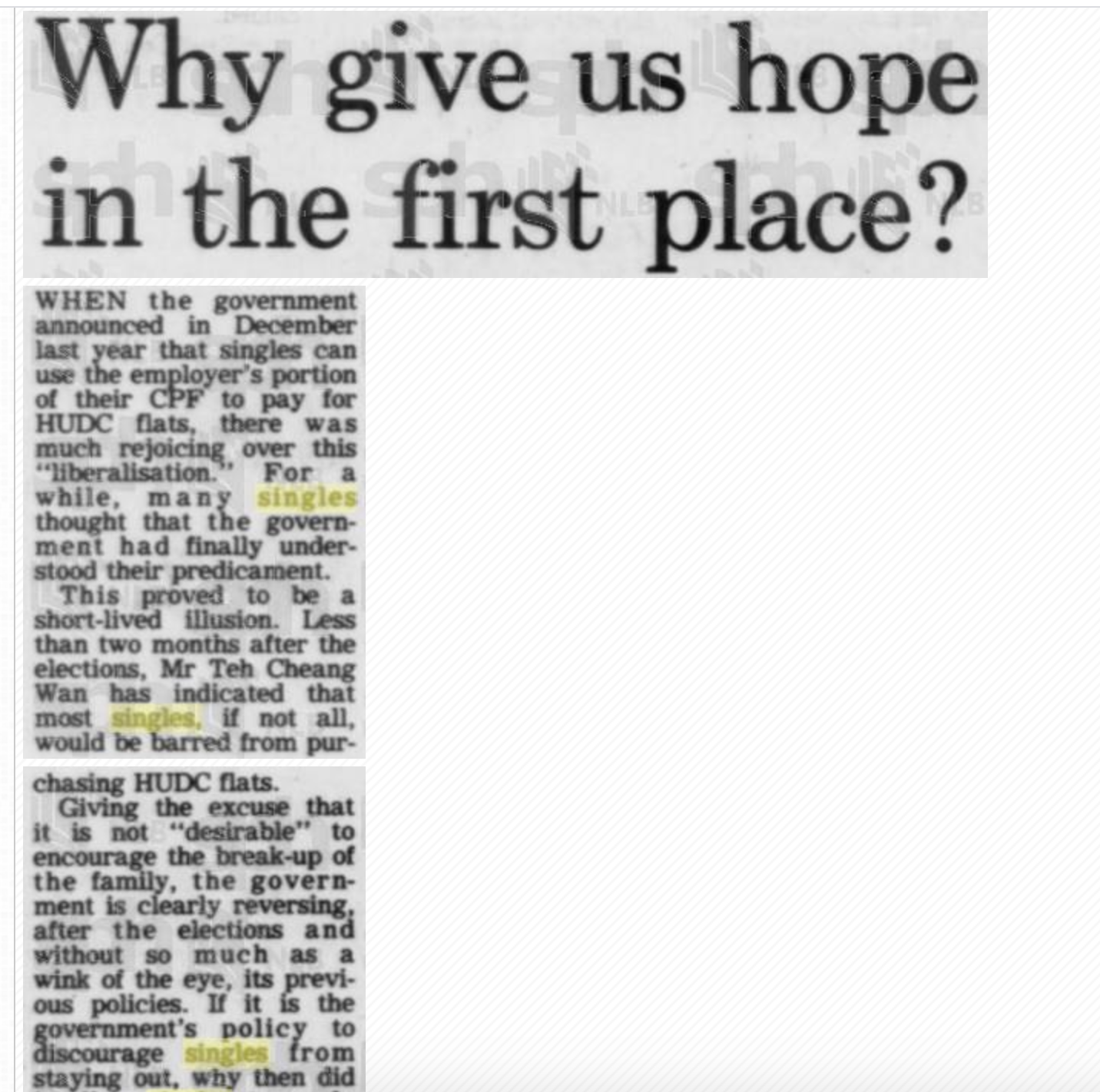 Image from NLB/ The Straits Times.
Image from NLB/ The Straits Times.
The letter focused on a number of issues regarding HUDC flats (including questions of cost and location), but perhaps the most stinging assertion was that this proposed ban was a U-turn from promises made before the 1980 General Election.
"Giving the excuse that it is not 'desirable' to encourage the break-up of the family, the government is clearly reversing, after the elections and without so much as a wink of the eye, its previous policies. If it is the government's policy to discourage singles from staying out, why then did it allow singles to apply for HUDC flats in the first place?"
Four days later, on February 28, the government announced that it would not be banning singles from buying HUDC flats.
But that announcement came with some caveats as well.
Singles below 40 would not be allocated a flat; they would instead remain on the waiting list and only be allowed a flat if "they form a family nucleus like those applying for HDB flats".
There was also going to be a downpayment of S$18,000. These measures were to "discourage frivolous applicants" and ensure they were bona fide buyers.
This ignited even more anger from the singles.
One recent divorcee whose HDB flat would most likely go to his two children and wife now faced a lodging predicament. He talked about how there was "no way" he could afford a private apartment or house (even if he could use CPF).
The HUDC was therefore his way out, and now had been taken away from him due to this policy shift.
"A prompt and reasonable reply"
Another letter on March 16 in ST also took aim at what the writer perceived to be the scheme's unclear directions.
The writer had made this observation after having gone down to the HUDC office and speaking to their staff. There, the writer was shocked to learn that a single applicant had to be married by May/June of this year to be considered. If not, on to the waiting list they go.
The letter ended off with this rather quaint phrase:
"The singles therefore trust that we may have a prompt and reasonable reply."
An ostensible voting bloc of individuals.
Debate in Parliament
Criticism of the policy shift also took centre stage in Parliament as even Teh's fellow ruling party MPs including Tan Soo Khoon (Alexandra MP), Tan Cheng Bock (Ayer Rajah MP), and Eric Cheong (Toa Payoh MP) questioned him at a March 20, 1981 sitting about HUDC's shift in policy.
Tan Soo Khoon said that HUDC had taken the easy way out by eliminating people from the waiting list. He also opined that if HDB did something similar, there would be "a great public outroar [sic]".
Cheong suggested that the retrospective banning of singles might be unfair, and perhaps a cut-off date would be fairer.
However, Teh said that a cut-off date was usually desirable, but not always possible.
According to an ST article:
"Policy had been changed because there was no way the HUDC could have kept up with the demand. If singles were each allotted a unit, the company would have to build several thousand units for them alone."
Despite the brickbats and criticism of the frequent changes and inconsistent policies, Teh stood his ground. He was sorry for the new ruling but insisted that it was a necessary move.
The article went on:
"If singles were each allotted a unit, the company would have to build several thousand units for them alone. They could build three HDB flats with the same amount of work involved in producing one HUDC unit."
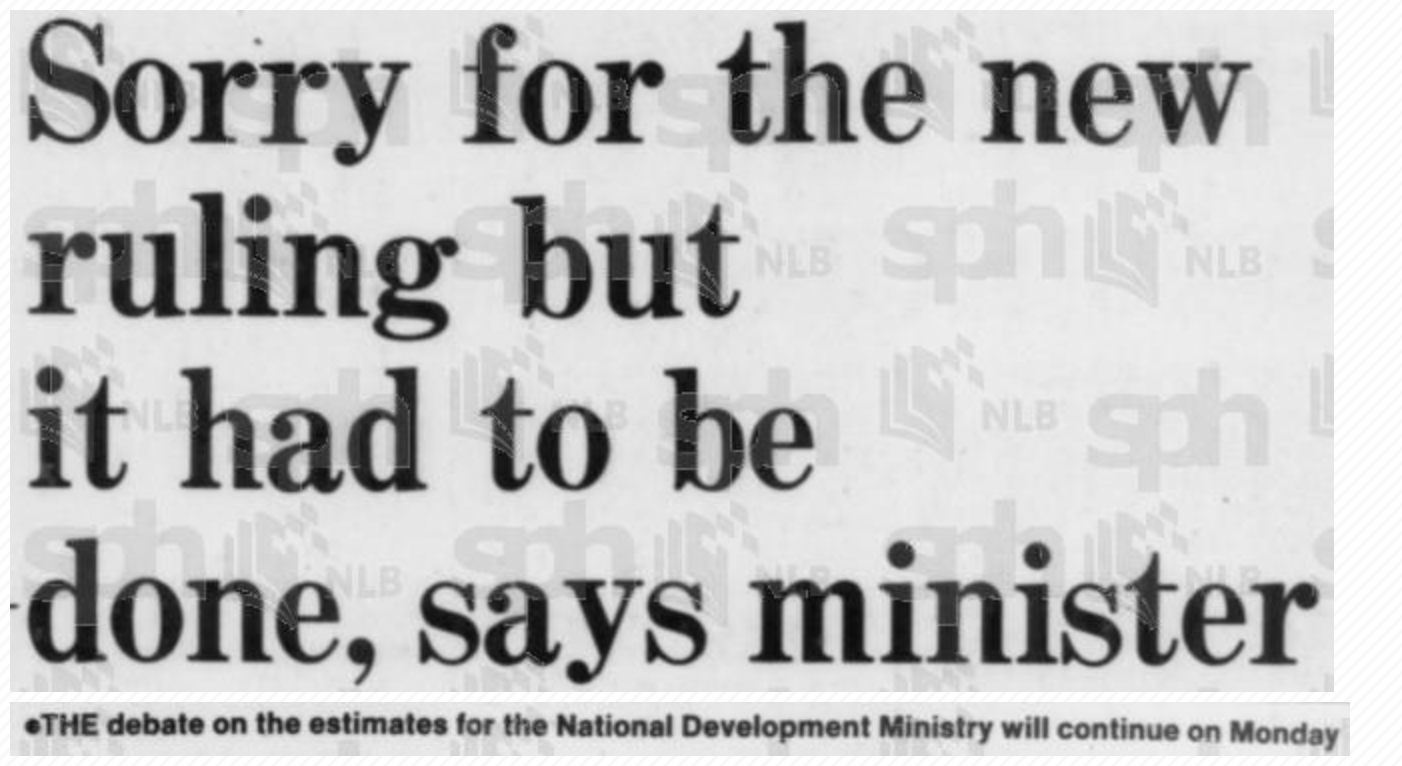 Image from NLB/ The Straits Times.
Image from NLB/ The Straits Times.
Single and ready to mingle/live in an HDB flat
With the HUDC proving to fall short of the oasis singles might have initially hoped it would be, calls for singles to be allowed to purchase flats continued over the years.
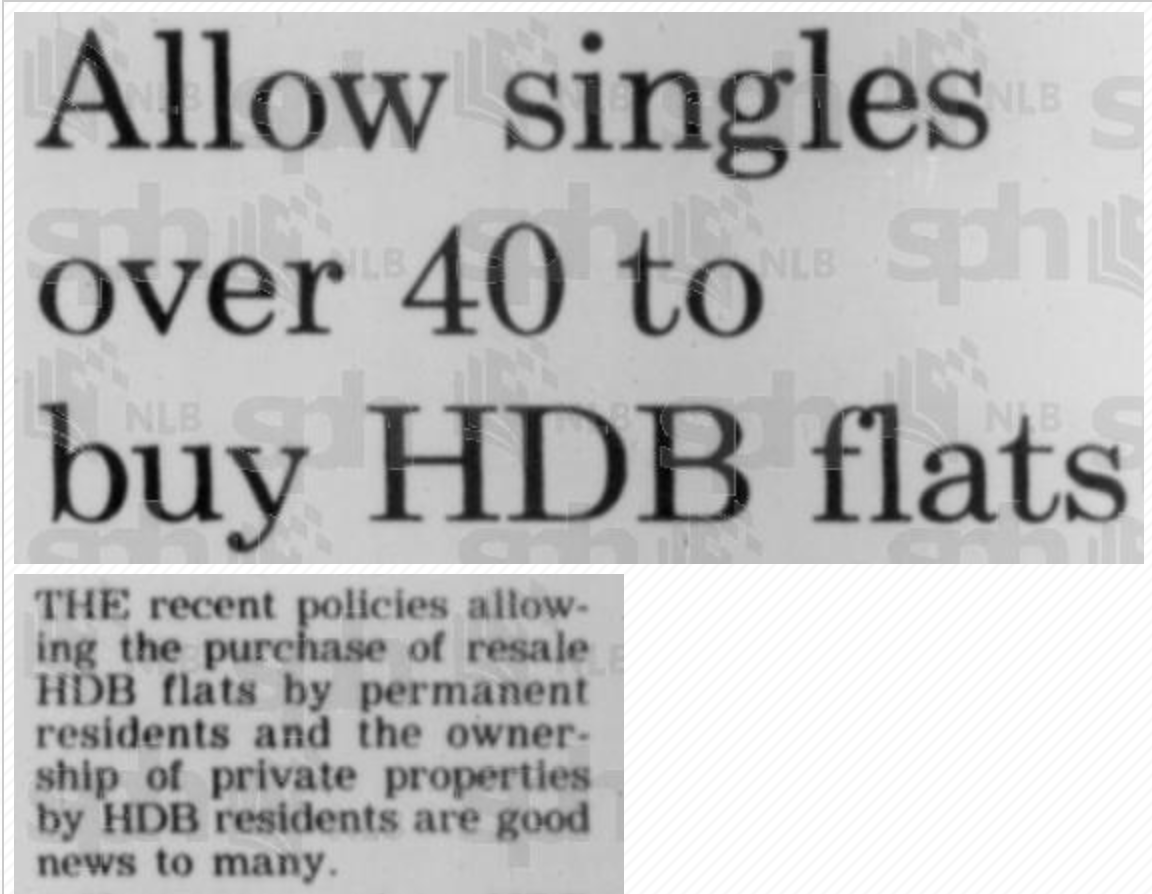 Image from NLB/ The Straits Times, 1989.
Image from NLB/ The Straits Times, 1989.
An underlying impetus for the calls was also the 1989 shift in house ownership policies for Permanent Residents.
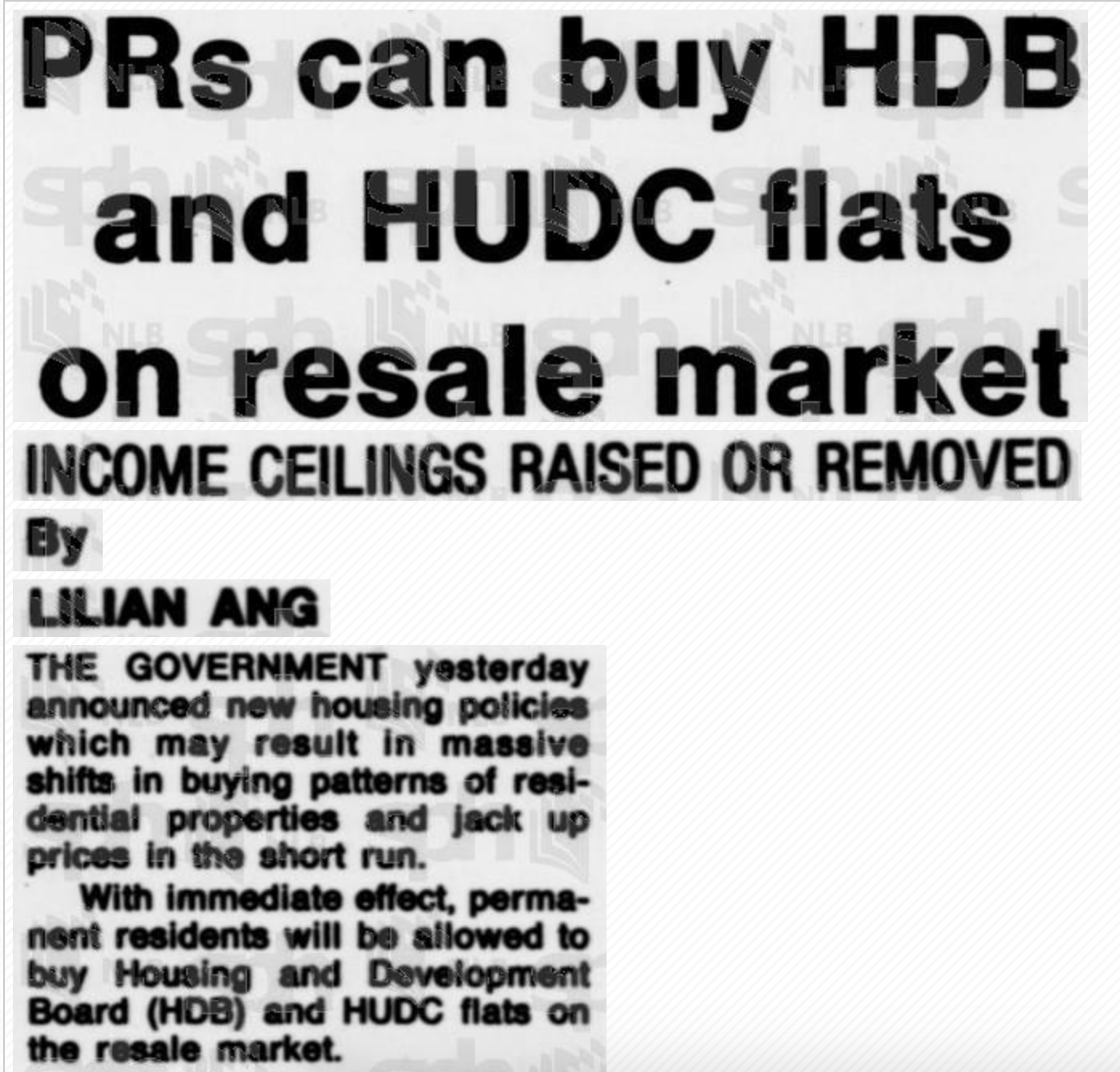 Image from NLB/ Business Times, 1989.
Image from NLB/ Business Times, 1989.
PRs were now allowed to buy HDB and HUDC flats on the resale market. Singaporeans who bought HDB and HUDC flats on the open market were now allowed to invest in private residential property as well.
The response by officials talked about land scarcity as well as a breakdown of numbers :
"The board would like to reiterate that in land-scarce Singapore, optimum utilisation of land is an essential long-term consideration in our housing policy."
One letter writer, "Bachelor Boy" (relation to "Still Bachelor" unclear) even gave some proposals for what he felt was a fair way to open up HDB sales for singles.
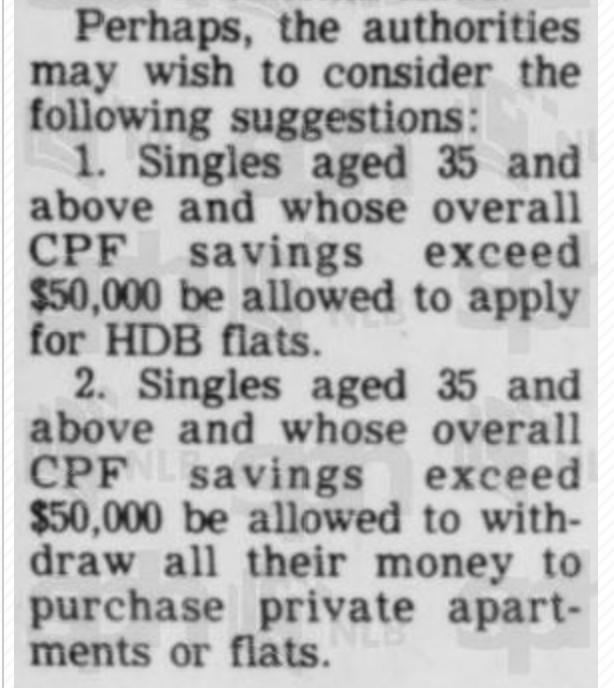 Image from NLB/ The Straits Times.
Image from NLB/ The Straits Times.
The omniscient "Bachelor Boy" had the age spot on, with the Single Singapore Citizen Scheme introduced in October 1991 allowing single Singaporeans aged 35 and above to purchase three-room or smaller resale HDB flats.
And finally after many years, dashed hopes, and letters, Goh Chok Tong in his first National Day Rally addressed the singles.
More than 10 years after the singles had requested a prompt and reasonable reply, they finally got it.
Top image from NAS
If you like what you read, follow us on Facebook, Instagram, Twitter and Telegram to get the latest updates.
